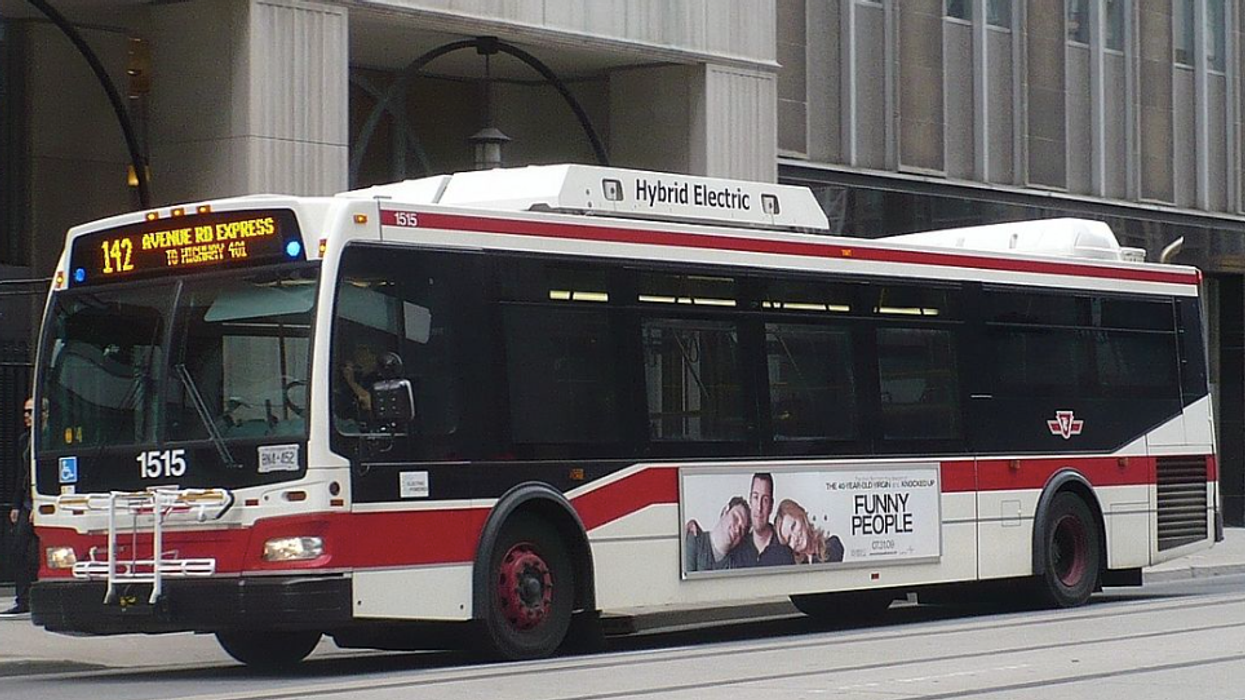Are you ready for Toronto's landmark driverless shuttle buses to hit the city street?
Officially known as the Automated Shuttle Trial, a "robo" vehicle will soon link the West Rouge neighbourhood in Scarborough with the Rouge Hill GO Transit station starting (hopefully) in September of 2020.
It's all part of the Automated Vehicles Tactical Plan and Readiness 2022 report approved Oct. 30 by Toronto City Council. Touted as a North American first, it's purpose is to prepare the city for the widespread use of self-driving cars. The city hopes to be ready for driverless vehicles by 2022.
READ: CAA’s Top-10 Worst Roads In Ontario And Top-5 Worst Roads In Toronto
Now, about booking seats on that first shuttle.
The automated vehicles will reportedly have room for up to 12 passengers. And don't worry - technicians will be always be onboard. The pilot project, first announced in 2018, carries a $1.2 million price tag.
In a news release, Mayor John Tory wrote: "By taking proactive steps today to prepare for fully automated technology, Toronto is preparing for the future. I'm confident that the comprehensive plan adopted today – the first of its kind by a North American city – will ensure we are ready to embrace the benefits of this emerging technology while preparing to confront the challenges that such an innovation will bring,”
READ: Canada’s First Driverless Shuttle Hits Quebec Roads, Toronto Planning Pilot Project
Back in January, Transportation Minister Jeff Yurek said that participants in the province's automated vehicle pilot program can now, under strict guidelines, test driverless cars on public roadways.
At the time, The National Post reported that nine participants — including BlackBerry’s QNX, Magna, Uber and the University of Waterloo — were then testing 10 vehicles, but hadn't yet used fully driverless ones.
A recent Washington Post article said that tech and car companies "have seized on automation as the solution to the problems of an aging population, pollution and congestion, and the collective ravages of the United States’ car dependence, pitching it as a way to significantly cut down — or even eliminate — the dangers of driving. Contrary to the notion that self-driving cars are just another one of tech’s sci-fi innovations, executives have argued that robocars are an inevitability of society’s march forward, relegating the manually driven car to the status of horse and buggy."
READ: Toronto To Test Driverless Cars For Trips To And From Transit Stations
Critics, the story said, "see the testing as a nakedly self-interested push for profit, an arms race to launch the first driverless taxi service and reap the profits that come from being unburdened to paying drivers" and that many people don't want to be the unwitting subjects of those tests."
Other critics of robo-cars have pointed out that the designers and builders of such vehicles don't necessarily understand the broader potential impacts.





















